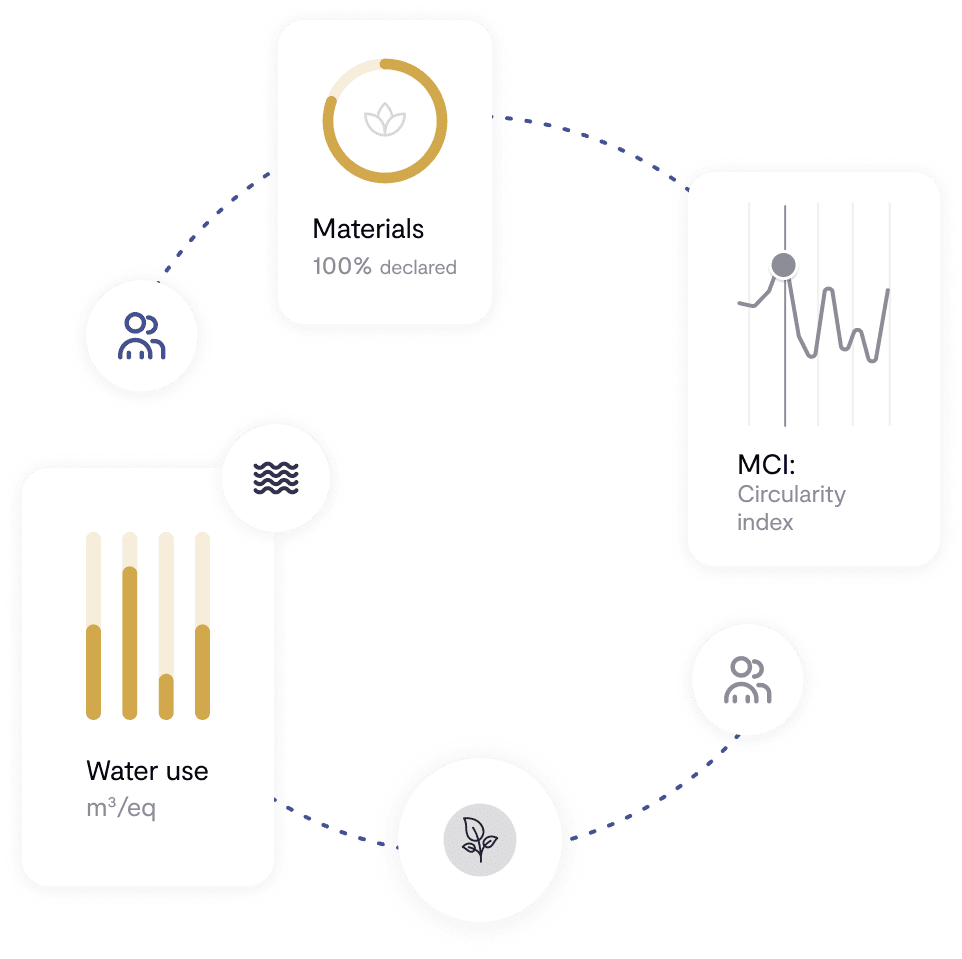Within the past few decades, a new trend in fashion has emerged where sustainability meets the world of design. Fashion Sustainability has put a new emphasis on the use of natural and organic materials such as wool, linen, and cotton, grown and harvested without harmful pesticides or chemicals with an end goal to create biodegradable pieces to decrease the amount of waste in landfills and overall pollution.
Regions such as the EU especially, have implemented new laws and regulations promoting sustainable fashion, but the US, on the other hand, has taken few initiatives. Thus, the future of fashion sustainability in the United States still remains a question. Are they planning on following in the EU’s footsteps by implementing stricter regulations or are they simply not there yet? Let’s take a look at their actions so far.
Fashion brands doing business in the state must focus on sustainability, supply chain transparency and reducing their environmental impact
Pressing fashion giants with the New York Fashion Act
In 2022, the New York Fashion Act – Fashion Sustainability and Social Accountability Act proposed environmental and human rights due diligence for fashion sustainability firms in New York. Fashion brands doing business in the state must focus on sustainability, supply chain transparency and reducing their environmental impact; promoting the implementation of public global supply chain maps, the integration of science-based greenhouse gas emissions reduction targets and publishing details on the management of chemical usage. It sounds promising right? Well, there are a few implications:
- First of all, the act is not mandatory for all companies in New York. It only applies to apparel, footwear, and handbag brands with annual revenues of over $100 Million. This includes major companies such as Gap, Ralph Lauren, and Tapestry and international players like Shein, H&M, Prada and LVMH.
- In addition, it only requires brands to disclose information about their supply chain, which does not necessarily improve sustainability. If companies don’t comply with regulation, the government will take up to 2 percent of the companies annual revenue ($2 Million per year). It seems like a low amount, but this is a significant measure in an industry that operates on narrow margins.
- Fortunately, it’s currently in the process of being passed. As of May 7th, it remains in the hands of lawmakers, and continues to increase in popularity.
- Companies who support this movement and are pushing for its passing include: Elieen Fisher, Patagonia, GANNI, Uprose, Everlane, Reformation, Another Tomorrow, Mara Hoffman, and many others.
- Although the implementation forecast remains uncertain at this time, it does in fact represent a significant step towards more accountability and transparency in the fashion industry.
As further regulations pass and sustainability comes to the forefront, the extra costs at the beginning will balance out
Sustainability regulations reach the US West Coast
On the other coast of the United States, who is most well known for its push towards a greener planet, California, introduced in October 2023, Senate Bill 253 and Senate Bill 261. SB 253 Climate Corporate Data Accountability Act is the first of its kind in the United States, following the establishment of the European Union’s Corporate Sustainability Reporting Directive.
- This act will mandate disclosure of greenhouse gas emission data to US business entities whose total annual revenues exceed one billion dollars (about 5,300 companies) and do business in California regardless of where their headquarters is located.
- Businesses will have to report Scope 1 emissions (direct greenhouse emissions), Scope 2 emissions (indirect greenhouse emission) and Scope 3 emissions (indirect upstream and downstream greenhouse emissions) starting in 2026.
- This is one of the most significant new requirements as covered entities must track and report on their emissions worldwide.
In addition, SB 261 The Greenhouse Gases: Climate-related Financial Risk Act will require companies with more than $500 million in annual revenue (about 10,000 companies) to disclose their climate-related financial risks and measures they have adapted to reduce and adapt to those risks.
- Like SB 253, the act will apply to all public and private companies above the revenue threshold doing business in California.
- The law requires companies to prepare their reports following the Task Force on Climate-Related Financial Disclosures framework with the first disclosure due in 2026. This new mandate seems more promising then New York, but the concerns are just as prevalent.
Business groups have argued that the bills will lead to increased litigation, relegation and higher costs that companies will pass onto consumers. Yes, this could be concerning initially, but as further regulations pass and sustainability becomes on the forefront, the extra costs at the beginning will balance out to the previous cost normality of production.
With this in consideration, the future of sustainability within the United States is definitely a work in progress. The actions taken so far are stepping stones, slowly creating a long path of sustainable regulation in the foreseen future. Only two states so far have taken initiatives, but a hopeful spark of interest nationwide will occur and flourish into something great.
With the New York Fashion Act becoming close to passing, and SB 253 and 261 that just passed, companies should start and continue to prepare for one of the biggest changes in fashion history. BCome, a pioneer of intelligent methodologies for global sustainability management works with companies from start to finish. From traceability to consumer communication, BCome has got you covered in every sector of sustainability. Putting your company in the best position to meet every new mandate and flourish in this new era. Let’s discuss your needs!









